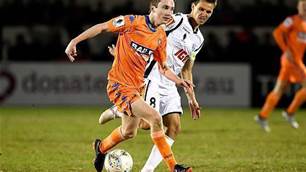Forget talent, you need an ever-burning inner desire to succeed as a footballer.
But now consider what happens to a youngster who subscribes to the talent myth – someone who believes that it is talent, not practice, that determines whether you will get to the top. This is a belief that will also have subliminal consequences of a very different kind. After all, if talent is so important, why bother to train hard?
If innate skill is everything it is cracked up to be, surely you can simply drift to the top? And, moreover, any time you fail, it surely means you have insufficient talent, and you should therefore give up.
Carol Dweck, professor of psychology at Stanford University, has spent most of her career examining the behavioural consequences of our beliefs about talent. Again and again she has found that the growth mindset – a belief in the power of practice – is the rocket fuel that drives effort and persistence. The fixed mindset, on the other hand (that is, a belief in the primacy of talent), undermines motivation. “Mindsets frame the running account that’s taking place in people’s heads,” she has said. “They guide the whole interpretation process.”
Tom Bates, a leading football psychologist currently working with Birmingham City, believes Dweck’s work holds the key to understanding the nature of motivation. “There is a tendency for young players to get preoccupied with whether or not they have talent. It is a destructive preoccupation.
Talent is about being able to do things without even trying. They think, ‘If I am talented, this should come effortlessly.’ And, if it doesn’t, they lose motivation.” Pep Guardiola has made the same point, albeit in a slightly different way: “Without a deep understanding of the importance of hard work, an academy cannot function.”
These insights also help to explain Brazil’s remarkable success in football, for it is a system that is built on the growth mindset. “Brazilian football has a culture that celebrates hard work,” Dr Emilio Miranda, professor of soccer at the University of Sao Paolo, has said. “The youngsters understand that without extraordinary amounts of practice, they will not get anywhere. That is why they are so self-motivated and willing to persevere.”
This may surprise those who have bought into the myth that Brazilian football is all about having a kick-around on the beach after a nice, relaxing siesta. “Journalists fly here, go to the beach, take pictures and write stories,” Miranda says. “But great players do not emerge from the beach.” Daniel Coyle, who has studied Brazilian football, agrees. “From Pele onwards every great Brazilian player... has spent thousands of hours at the game.
Teenage players at Brazilian soccer academies log 20 hours per week, compared with five hours per week for their British counterparts.” But if the growth mindset is so powerful, and holds the key to motivation, how can it be instilled in a player or a team? How can a young person, schooled in the talent myth, be guided towards the belief that effort is the key? Once again, we may find an answer in the work of Dweck, the American psychologist. In a pioneering experiment, she took 400 youngsters and gave them a series of simple puzzles. Afterwards, each of the students were given their scores, plus something else: six words of praise. Half the students were praised for talent: “You must be smart at this!”; the other half were praised for effort: “You must have worked really hard!”
Dweck was testing whether these simple words, with their subtly different emphases, could make a difference to the student’s mindsets. The results were remarkable.
After the first test, students were given a test so tough that none of them succeeded. But there was a dramatic difference between the ways they responded to failure. Those praised for talent interpreted their failures as proof that they were no good at puzzles after all.
The group praised for effort persevered on the test far longer, enjoyed it far more and did not suffer any loss in confidence. Then the experiment came full circle, giving the students a chance to do a test of equal difficulty to the very first test. What happened? The group praised for talent showed a 20 per cent decline in performance compared with the first test, even though it was no harder. But the effort-praised group increased their score by 30 per cent. Failure had actually spurred them on.
And all of these differences turned on the difference in six simple words spoken after the first test. “These were some of the clearest findings I’ve seen,” Dweck said. “Praising talent harms motivation and it harms performance.”
The reason is not hard to locate: it is because talent-based praise orients the receiver towards the fixed mindset; it suggests to them that talent is of primary importance rather than the effort through which skill can be transformed. What this tells us is that we must resist the temptation of praising talent and instead always praise hard work. This is far from easy in a world where the talent myth is so pervasive. But if it can be adopted, the results are extraordinary.
Of course, one of the biggest challenges for a coach is working with a group that contains hard workers and shirkers. This is tricky because the tendency is for the lazy players to have a greater influence on the hard workers, rather than vice-versa. As one sports psychologist has put it: “As with many social situations, there is often a race to the bottom. Hard workers feel like the lazy ones are getting a free ride, and this can be seriously de-motivating, leading to a general malaise.”
This will be familiar to many coaches, but the solution is crystal clear. The tendency to idleness is not merely about laziness but also about beliefs. A coach who consistently eulogises hard work will not only entrench the growth mindset in his hard-working players, but will slowly alter the default settings of his lazy players. After a time, with a consistent emphasis on hard work, the culture will begin to change. Laziness will be seen as an unworthy trait. Hard work will be admired.
Peter Keen, who masterminded the success of the British team at the 2008 Olympics, put it this way: “In the British Olympic movement, we have a stated goal of trying to create places where the culture of personal transformation is so deeply embedded it rubs off on aspiring youngsters. I have no doubt that the success of the British cycling team (who won eight golds in Beijing) is the culture of its training base.”
Pete, still working with those under-13s in south-west London, is determined to change the way he interacts with his players. “I am going to stop praising for talent, and just focus on praising hard work,” he says. “I am looking forward to seeing the difference.” It will take time, but the changes will come. The growth mindset is the rocket fuel of excellence.
This article appeared in the August 2011 issue of Australian FourFourTwo magazine. To buy back copies of this issue call 03-8317-8121 with a credit card to hand.
The current edition of Australian FourFourTwo has just gone on sale in newsagent across the country, or you can subscribe here
Related Articles

Three future A-League players smashing Queensland's NPL

Four future A-League players smashing it in the NPL













